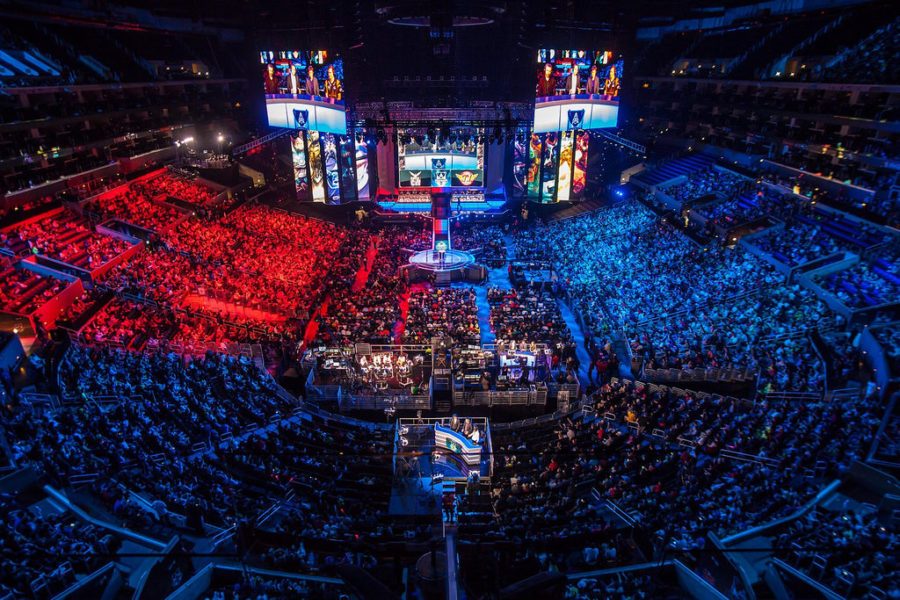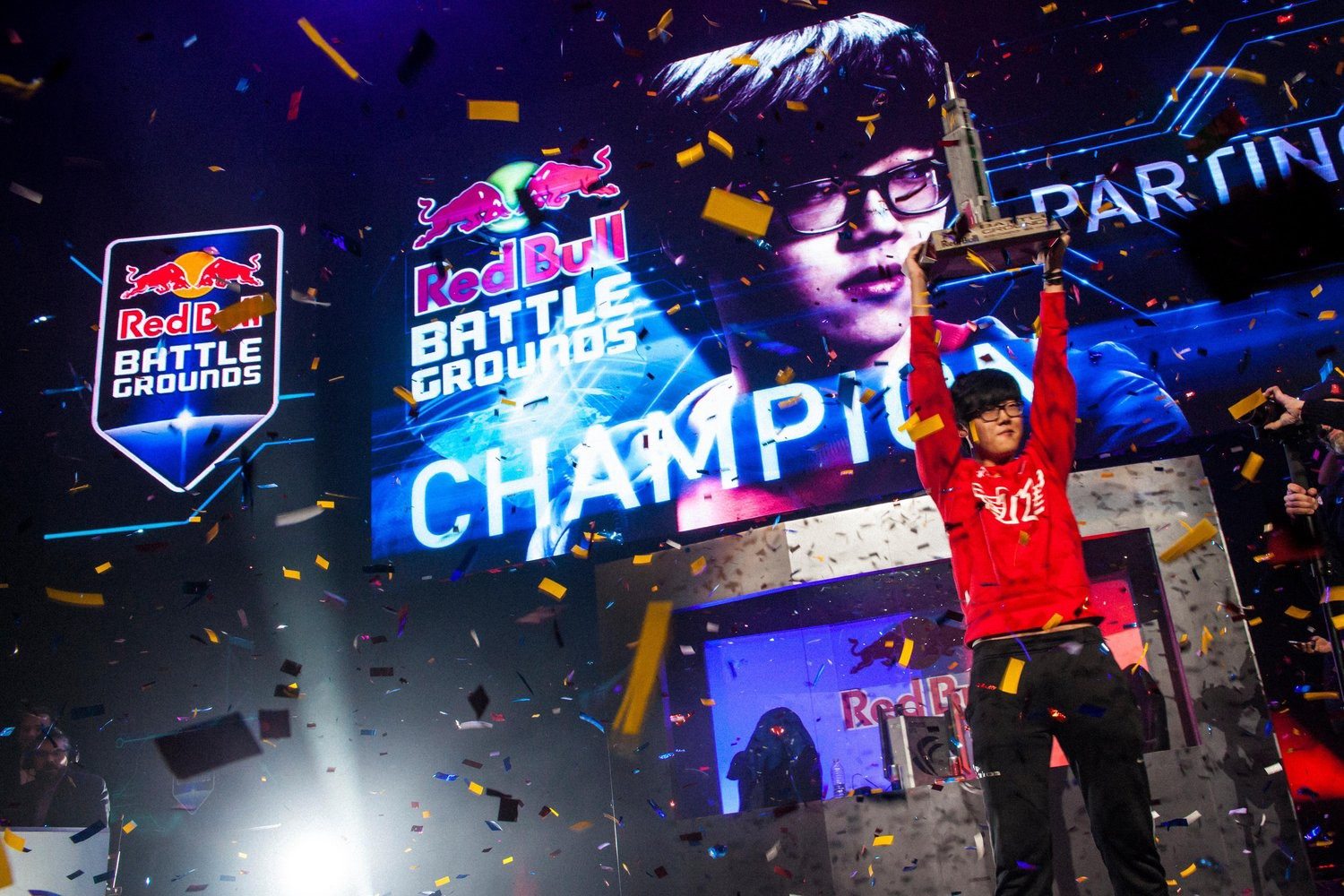Though E-Sports are not as young of a scene as most mainstream audiences may believe, the industry and business side of professional gaming is still developing rapidly. What used to be a completely grassroots by-the-players, for-the-players circuit sponsored by endemic companies has morphed into a significant corporate behemoth trying to discover where the management tactics from traditional sports and business can meld with this unique subculture.
In the past, competitive gaming has been a labor of love, and passion- larger mainstream acknowledgment, new rounds of investment, and the overall growth of the scene has begun to shift the industry into something that is more focused on the fiscal bottom-line. For someone looking into becoming an E-Sports manager that is encouraging; the salaries are going up and traditional business routes into game management are possible. But this can also mean that it will be harder to break into a sphere that was already competitive, built up around people”s passion projects, and now receiving a more critical financial lens. It used to be that the pathway to e-sports management was to be a professional player who transitioned over to team running (like Andy Dinh or Steve Arhancet. Today the line between e-sports and traditional sports is blurred more than ever, with long lineups of sponsors, stadium-sized events, and marketing budgets. As e-sport managers often have to tackle a wide breadth of responsibilities (more on that below), a potential e-sports manager would almost certainly take useful information from management-centered degrees (such as a master’s in sports management or a sports management mba). Though many traditional e-sport routes of success are also possible.
Before go further into how to become an e-sports management, let’s talk about what exactly e-sports management is. E-sports Managers have a tremendous breadth of responsibilities that shift from organization to organization, as well as from game to game. Reductively, an E-sports Managers handle everything that happens outside the game, which is a lot! The logistics and competitive structures are very different from title to title- some follow a format similar to golf or tennis with a series of tournaments with varying ranking points and prize pools, whereas other games use league-based systems like the NBA or MLB.

League of Legends has constructed a massive international networks of leagues (LCS in EU and North America, CBLoL in Brazil, LPL in China, LCK in Korea, and more) that culminate in the yearly World Championship tournament in October. Contrastingly, Defense of the Ancients 2 (DOTA 2) has a worldwide calendar of 11 majors and 14 minors (categorized by prizepool size) building into the end of year capstone tournament, “The International”. Both of those games are considered Massive Online Battle Arenas (MOBAs), whereas fighting games like Super Smash Bros, Street Fighter, or Tekken only use a tournament-based schedule. Interestingly, the team-based first person shooter (FPS) Counter-Strike: Global Offensive (CS:GO) has both E-League and a tournament system.
The type of competitive calendar that a gaming squad has directly impacts the workload an E-sports manager has, and with E-Sports being such a global industry, the requirements for becoming an E-Sports Manager can be dramatically different from region to region. The size and popularity of the games can also impact whether a manager focuses on just one game, or manages across multiple titles- for instance, Team Liquid”s Michael Artress manages their high profile League of Legends team, TL”s Brittany Lattanzio manages 20 gamers across six titles.
For game titles that involve traveling to tournaments, a major part of working as a team manager is handling travel logistics. Buying flights, booking practice spaces for before and during tournaments, meal planning, and settling lodging in a way that doesn”t disrupt the headspace of the gamers from their competition is vital to the successful function of a team.

Many team based games such as League of Legends and CS:GO have gaming houses where all the players live together with a coach or manager. The manager can be responsible for finding a house in an appropriate location within the budget given to them, runs the household, in some cases even acting as the house chef, or doing laundry for the players. As the live-in supervisor, team managers can also fulfill a sort of mentorship role in the house, guiding the gamers through personal problems. Many professional gamers are quite young, with rookies sometimes in their mid-teens, and have much to learn about how the world functions. Living in close quarters with stressful competitive goals can lead to explosive emotions and fractured relationships, as evidenced by the Team Liquid Breaking Point documentary about their 2016 League of Legends team.
Established game titles such as League of Legends, CounterStrike: Global Offensive (CS:GO, Defense of the Ancients (DOTA) 2 are more difficult to break into, since they have better developed support structures and the larger audience makes the roles more sought after. Perhaps the best way to get considered for a role with an organization is creating a dynamic social media presence, such as on Twitter or in a relevant subreddit (either for a specific game or the organization) and demonstrating a consistent and persistent passion for the players, game, and brand. Garnering large numbers of upvotes and consistently reaching the top of comment threads is sure to get noticed- Reddit is closely watched by the industry and high visibility on Reddit shows a resonance with the opinions of the community at large.
With many pro gamers of the US being international citizens, E-Sports Managers can be involved with the scouting and identification of talent, making contact and negotiating contracts, and working with immigration services to get the appropriate visa paperwork completed so the imported talent can legally live and work in the States. Being able to speak Mandarin or Korean would be a massive asset to a team, and is a hireable skill by itself considering the massive player bases and history of success of Chinese and South Korean players have across game titles. Speaking one of these languages would help ease transition for the foreign player, helping them to acclimate and not become homesick or lonely. This, in turn, allows them to focus on the game and be more productive, validating the time, effort, and financial investment it took to recruit and sign them.

For some organizations, E-sports managers are also involved in increasing revenue acquiring sponsors and figuring out ways to execute endorsements. As such, a background in advertising or marketing could set an application apart from the pack. Again, E-sports orgs are very different from each other: NaVi (Natus Vincere) is an almost entirely Ukrainian org, Fnatic, based in London, has an international management team and a mostly European player roster, and Echo Fox is owned by retired NBA player Rick Fox and run by former NBA player and front office management member Jared Jeffries.
Each of these organizations have taken radically different paths to success, and look for very different things in their managers. There is no clear path to the dream job- but the most important qualities are a passion for gaming, a willingness to sacrifice in nearly every other area of life, and a relentless pursuit of the goal. Depending on the maturity level of a given e-sport one could either look to a traditional mba or sports management degree, or grind it out on youtube or twitch until you have a following. The answer is really e-sport-specific. Yet as time goes on it’s more and more clear that e-sports are getting huge (and here to stay).